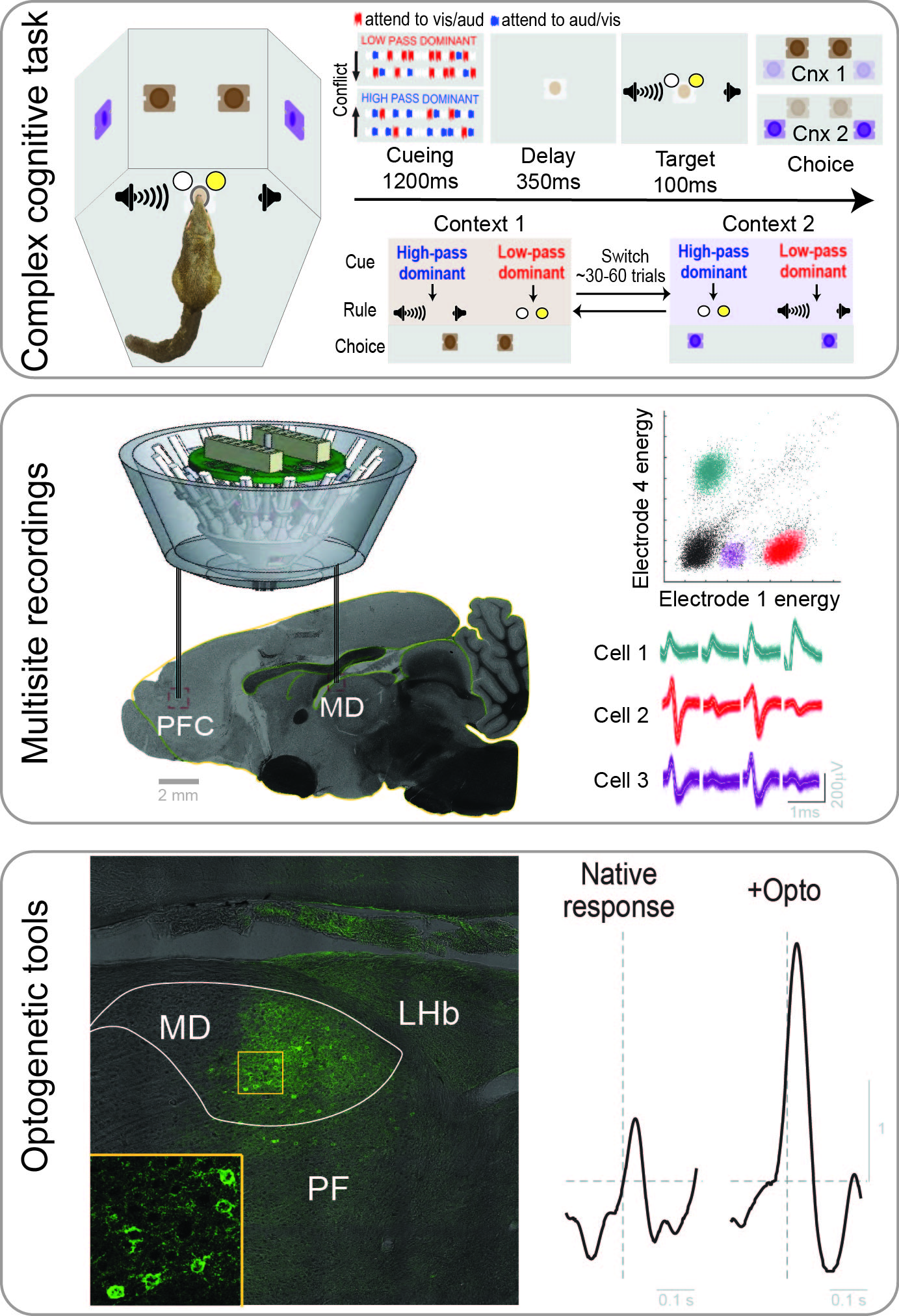Halassa Lab
Project 1
Tupaia Belangeri as a model for higher level cognition
We have been using the tree shrew, Tupaia Belangeri as a model for higher level cognition. Tupaia is a primate relative with neural circuits that are amenable to genetic access through viral tools. We have developed a number of tasks to tackle cognitive domains of interest. For example, we have trained Tupaia on a hierarchical reasoning task in which they receive noisy cues on single trials but the cue-to-rule mapping reverses across blocks. Our data reveals that these animals are able to appropriately attribute the sources of errors in their behavior, allowing us to study how the brain manages credit assignment in complex environments.

Address
Department of Brain & Cognitive Sciences
43 Vassar St
Cambridge, MA 02139
Accessibility
MIT is committed to providing an environment that is accessible to individuals with disabilities.
You Are Welcome Here
Halassa Lab is committed to creating a diverse environment. All qualified applicants will receive consideration for employment without regard to race, color, religion, gender, gender identity or expression, sexual orientation, national origin, genetics, disability, age, or veteran status.
